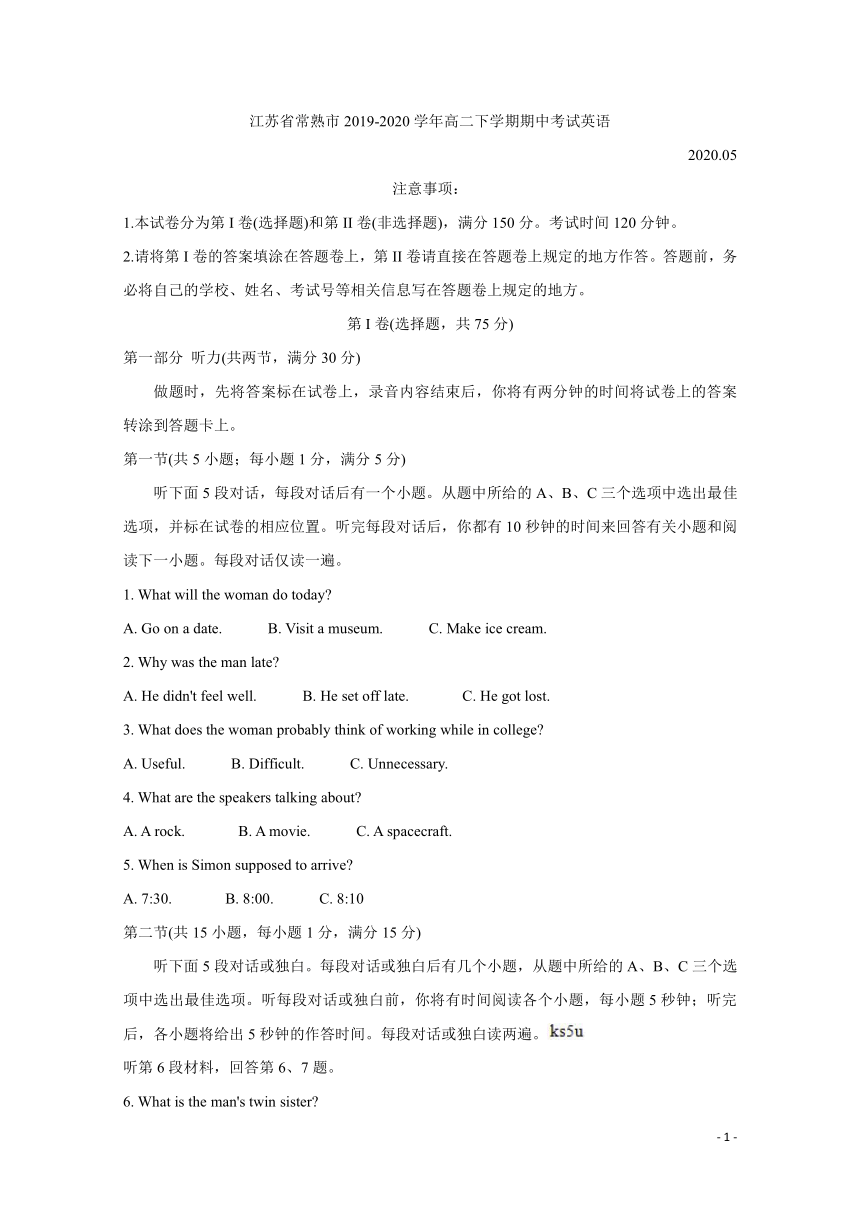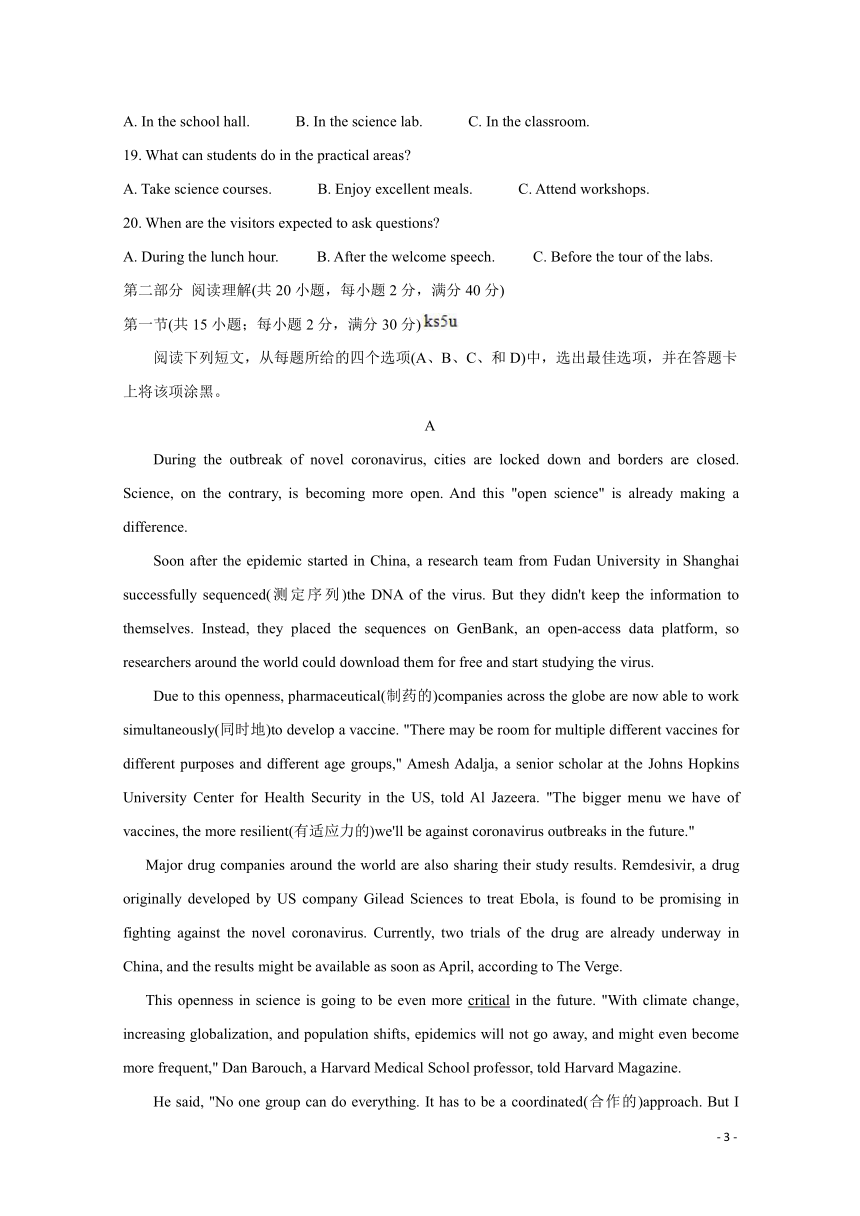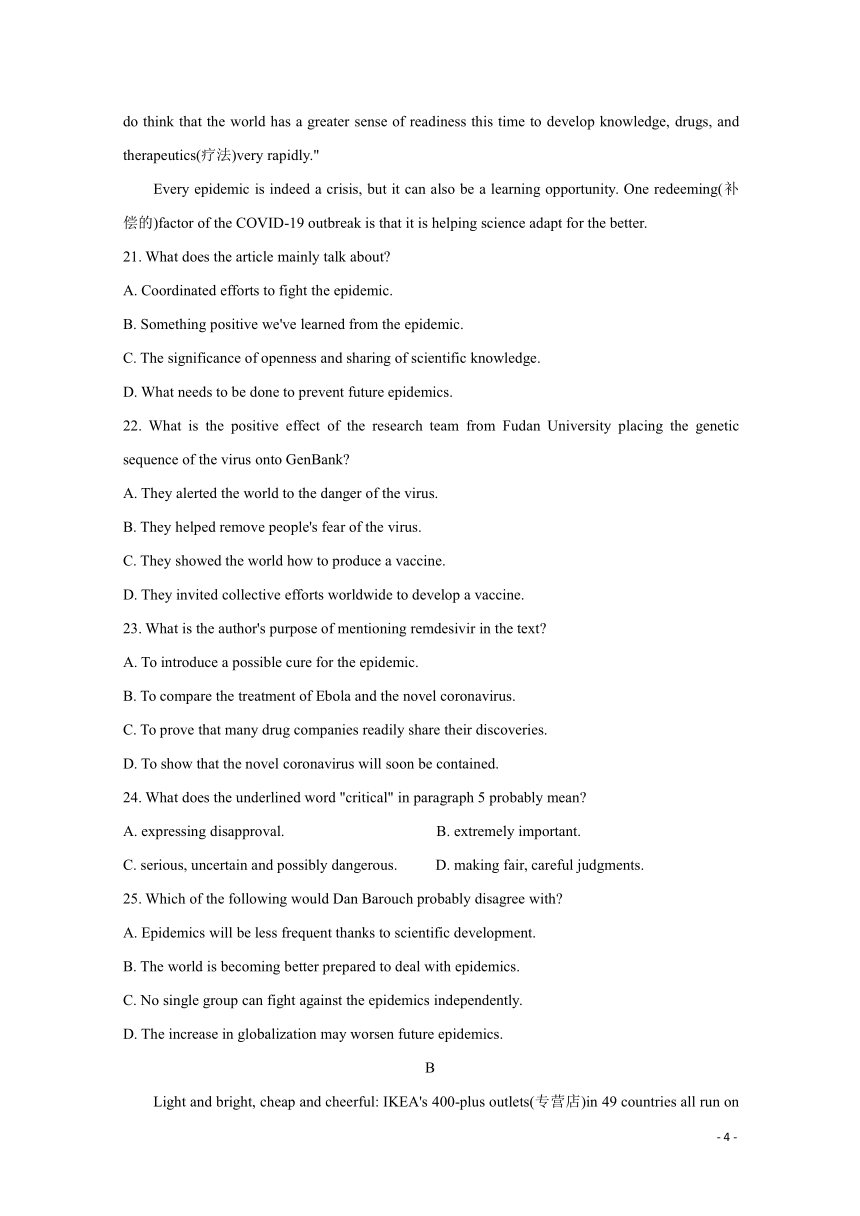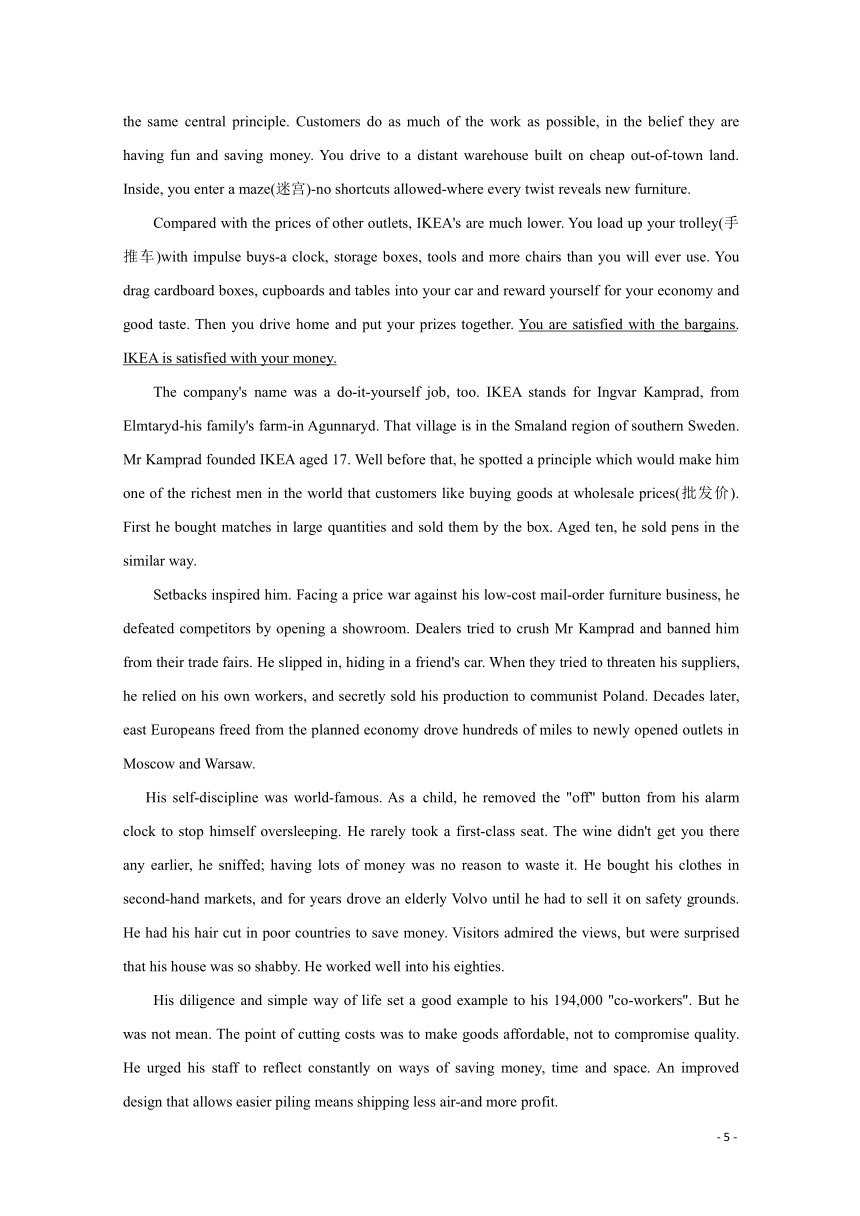2019-2020学年江苏省常熟市高二下学期期中考试英语试题 Word版(无听力音频有文字材料)
文档属性
| 名称 | 2019-2020学年江苏省常熟市高二下学期期中考试英语试题 Word版(无听力音频有文字材料) |  | |
| 格式 | zip | ||
| 文件大小 | 1.6MB | ||
| 资源类型 | 教案 | ||
| 版本资源 | 牛津译林版 | ||
| 科目 | 英语 | ||
| 更新时间 | 2020-07-13 08:27:17 | ||
图片预览





文档简介
During the outbreak of novel coronavirus, cities are locked down and borders are closed. Science, on the contrary, is becoming more open. And this "open science" is already making a difference.
Soon after the epidemic started in China, a research team from Fudan University in Shanghai successfully sequenced(测定序列)the DNA of the virus. But they didn't keep the information to themselves. Instead, they placed the sequences on GenBank, an open-access data platform, so researchers around the world could download them for free and start studying the virus.
Due to this openness, pharmaceutical(制药的)companies across the globe are now able to work simultaneously(同时地)to develop a vaccine. "There may be room for multiple different vaccines for different purposes and different age groups," Amesh Adalja, a senior scholar at the Johns Hopkins University Center for Health Security in the US, told Al Jazeera. "The bigger menu we have of vaccines, the more resilient(有适应力的)we'll be against coronavirus outbreaks in the future."
Soon after the epidemic started in China, a research team from Fudan University in Shanghai successfully sequenced(测定序列)the DNA of the virus. But they didn't keep the information to themselves. Instead, they placed the sequences on GenBank, an open-access data platform, so researchers around the world could download them for free and start studying the virus.
Due to this openness, pharmaceutical(制药的)companies across the globe are now able to work simultaneously(同时地)to develop a vaccine. "There may be room for multiple different vaccines for different purposes and different age groups," Amesh Adalja, a senior scholar at the Johns Hopkins University Center for Health Security in the US, told Al Jazeera. "The bigger menu we have of vaccines, the more resilient(有适应力的)we'll be against coronavirus outbreaks in the future."
同课章节目录
